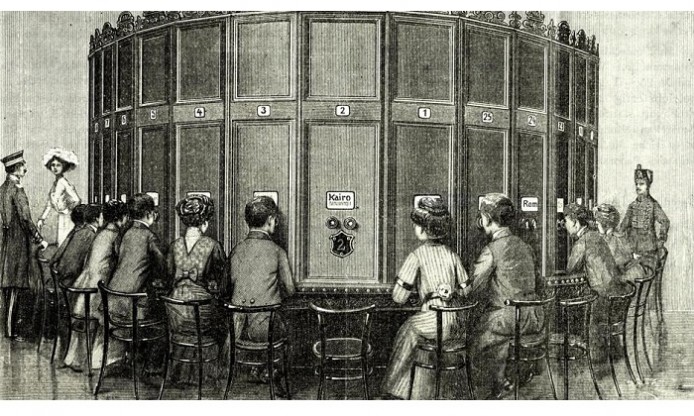13th International Seminar on the Origins and History of Cinema
ON LINE
October 20th, 21st and 22nd, 2021 – from 15:00h to 19:00h
Organized by: Museu del Cinema, The Department of History & History of Art at the University of Girona and the Ministry Project “Virtual worlds in early cinema: devices, aesthetics and audiences”
CALL FOR PAPERS until 5th May 2021: https://www.girona.cat/shared/admin/docs/c/a/call_for_papers.eng.pdf
The seminar Virtual worlds in early cinema: devices, aesthetics and audiences comes from an obvious desire for articulating a clear relationship among cinema’s past and contemporary audiovisual’s present. The nodal point of the project is the concept of virtual worlds. As Pierre Lévy states, we assist nowadays before a “general movement of virtualization has begun to affect not only the fields of information and communication but also our physical presence and economic activities, as well as the collective framework of sensibility and the exercise of intelligence. The process of virtualization has even affected our modalities of being together, the constitution of a collective “we” in the form of virtual communities, virtual corporations, virtual democracy...”.
At the present time, an essential debate in the study of early cinema consists in the possibility of thinking in which way cultural series pre-exist. If the goal of early cinema studies was no other than trying to analyze the cultural, aesthetics, economical and social conditions which had accompanied the birth of a new way of expression, currently the debate has been moving into the possibility of creating and establishing bonds among past and present. In order to understand the emergency of virtual worlds, we have to consider why dioramas or panoramas proposed to 19th century audiences ways of immersion in a universe built by images. In order to understand how new depth of field three-dimensional forms are generated it is necessary to know how from the beginning of photography stereoscopic images arose and how these were already present under the model of relief cinema in 1910. It is also necessary to know that despite sound film official institutionalization in 1927, a series of tests oriented to the search of systems for sound synchronization were already carried between 1907 and 1908. Cinema was born to expand itself beyond cinema itself because, ultimately, the notion or idea of virtuality was already present in many of the visual devices which were created between the ending of 19th century and the beginning of 20th century. It is for this reason that in order to study how the virtual universes of early cinema were generated, it is necessary to know the devices that originated them and the places where they were produced. At the same time it is also key to know which were the aesthetic challenges that cinema undertook beyond the moving images’ projection onto a screen. From the beginning there were created spectacles such as the Hale’s Tours that simulated the movement in a mean of transportation while the images were being projected or Mareoramas that recreated boat travels, with the purpose of creating immersive type experiences.
All these elements proposed aesthetic proposals for which cinema was not unrelated and that went through a desire of the virtualization of the experience, but also produced certain audience models which seek to find a correlate between virtual experience offered by the spectacles, with the new perceptive experiences originated in real life in a changing moment caused by the modernity.
As in the last editions, the Seminar will be split into two parts that will be alternating. The first part will be committed to theoretical reflection on the main subject with several lectures by prominent experts. In the second half, the goal is that different researchers expose and debate with the attendants the results of the studies they are developing in the field of pre-cinema and / or early cinema. From the 13th International Seminar on the Origins and History of Cinema’s organization we encourage you to participate, and we offer you the possibility of disseminating your research works through the tribune of this Seminar.
img. from Museu del Cinema Twitter post.


